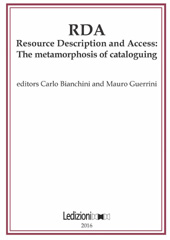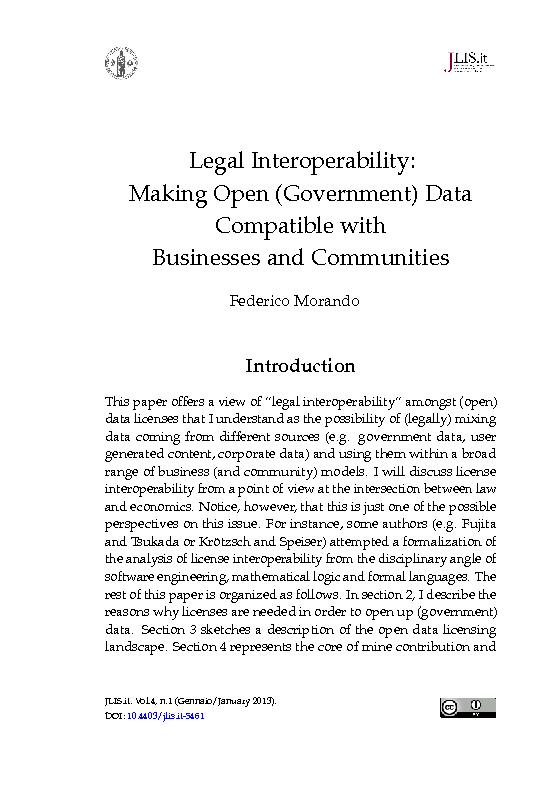Legal interoperability : making Open Government Data compatible with businesses and communities
441-452 p.
"Legal interoperability" could be defined as the possibility of legally mixing data coming from different sources (including governmental data, data generated by online communities and data held by private parties). Legal interoperability is similar to technical interoperability, since it is a prerequisite for mixing data and create new knowledge or services. But it also has its own peculiarities, for instance because it could be achieved simply choosing the appropriate licensing scheme, but also because self-help mechanisms which could - at a certain price - guarantee technical interoperability to third parties cannot (lawfully) solve legal interoperability issues. In the mid/long run, legal interoperability could be achieved thorough the evolution of legal frameworks in order to harmonize the landscape of Government Data.
In the short term, the shortcomings generated by diversified legal frameworks may be alleviated through the careful choice of copyright licenses. The presentation will focus on the latter aspects, discussing existing public licenses (such as the Creative Commons and Open Data Commons ones), representing a de facto standard in this domain, and the main open data licenses developed by European governments (e.g. the Open Government Licenses in the UK, the French License Ouverte or the Italian Open Data License). [Publisher's Text].
-
Articles du même numéro (disponibles individuellement)
-
Informations
Code DOI : 10.4403/jlis.it-5461
ISSN: 2038-1026
KEYWORDS
- Data mining, Governement data, Interoperability, Library linked data



